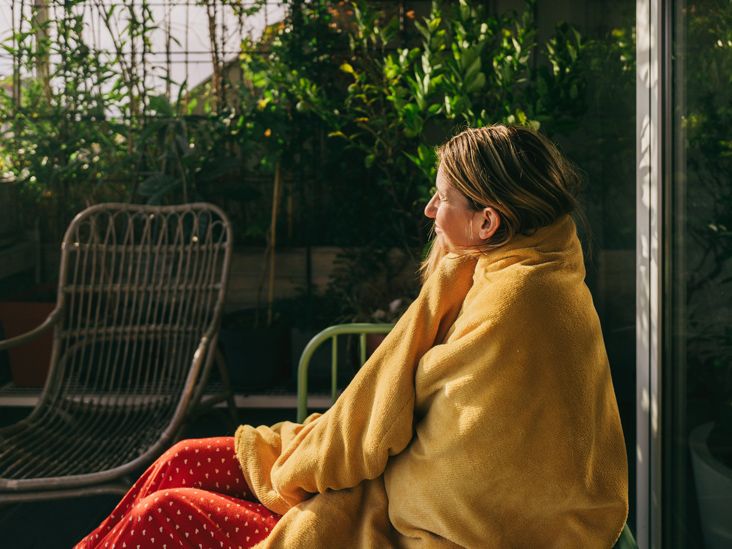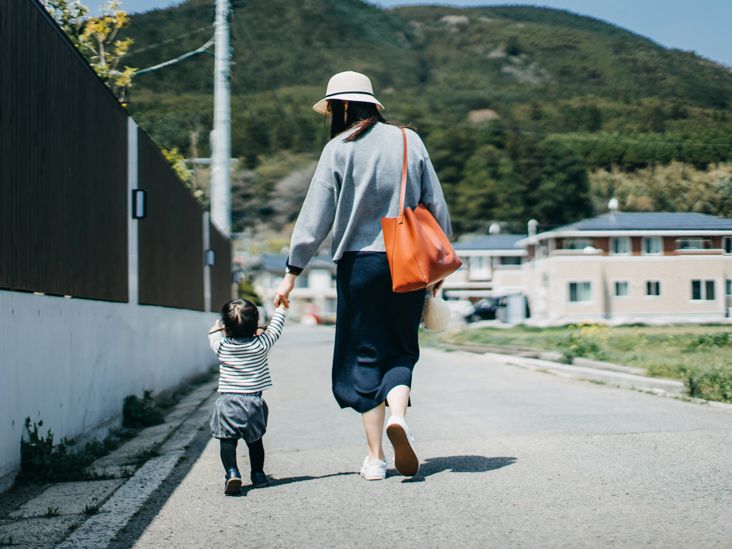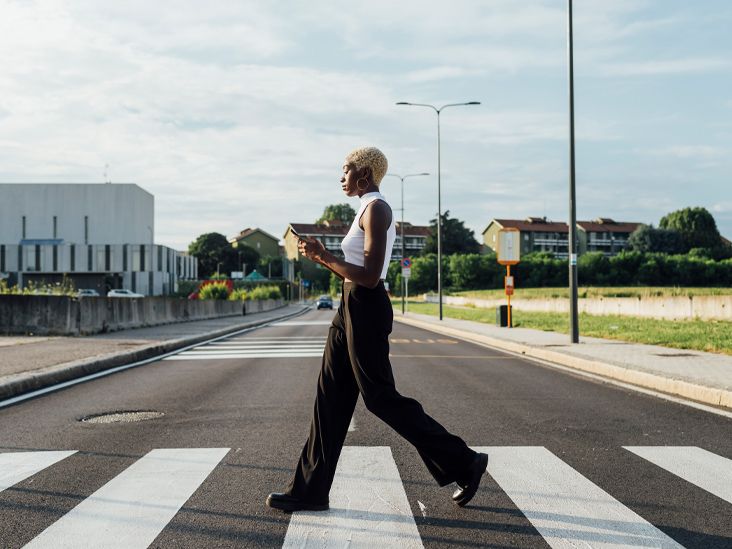
We include products we think are useful for our readers. If you buy through links on this page, we may earn a small commission. Here’s our process.
Healthline only shows you brands and products that we stand behind.
Our team thoroughly researches and evaluates the recommendations we make on our site. To establish that the product manufacturers addressed safety and efficacy standards, we:- Evaluate ingredients and composition: Do they have the potential to cause harm?
- Fact-check all health claims: Do they align with the current body of scientific evidence?
- Assess the brand: Does it operate with integrity and adhere to industry best practices?
Welcome back to You’re Not Alone: A mental health series where we aim to highlight mental conditions that affect people’s day-to-day lives, and what products, apps, and services they use to make their every day easier. This month, we hear from Morgan Mandriota, a writer who has attention deficit hyperactivity disorder (ADHD).
My name is Morgan Mandriota, and I currently use she/her pronouns. I’m 29 years old, I’m a writer and editor at Healthline, and I live with attention deficit hyperactivity disorder (ADHD).
I was diagnosed with ADHD when I was 28. I suspected that I had it for a while, but I never felt comfortable bringing it up to my therapist at the time because she didn’t really believe in mental health labels or diagnoses. (I know. Yikes.)
For so long, I wondered what was wrong with me — why I was the way that I was. I saw my peers accomplishing things and (seemingly effortlessly) doing life and envied them because I always had a hard time staying afloat. I so badly wanted to feel “normal” but never did. I just didn’t feel right. I felt broken, lazy, stupid, ashamed, and unable to function like everybody else.
So, I took my mental health into my own hands outside of therapy.
I took ADHD online quizzes and scored “extremely likely” on all of them. I self-assessed the official Diagnostic and Statistical Manual of Mental Disorders, Fifth Edition (DSM-5) ADHD diagnostic criteria and “passed” with flying colors. I resonated with ADHD literature and related to every single ADHD meme on the internet. I had a strong feeling that this was “it.”
When my therapist finally diagnosed me last May, I cried hysterically. Receiving that diagnosis felt validating and relieving in ways I could never express. Now, when I notice my symptoms flaring up, I no longer feel confused. I know that’s my brain doing its thing. And it’s nothing to be ashamed of. I’m just ~built different~. It’s “just” ADHD.
ADHD is a mental health condition that’s also considered to be a learning disability and neurodevelopmental disorder.
People who live with it typically feature symptoms of impulsivity, hyperactivity, and inattention.
There are three different types of ADHD:
- inattentive ADHD: difficulty focusing and paying attention, easily getting distracted
- hyperactive-impulsive ADHD: difficulty managing impulses, fidgeting, restlessness
- combined ADHD: a combination of inattentive, hyperactive, and impulsive symptoms
People often say that they’re a “little bit ADHD” when they get distracted or feel disorganized, but this detracts from the severity of this mental health condition. Contrary to popular belief, most people are not a little bit ADHD.
In fact, ADHD isn’t as common as you might think. According to the American Psychiatric Association, 8.4 percent of children and 2.5 percent of adults live with ADHD.
It’s said to be more prevalent among boys and men. However, I’ve interviewed plenty of therapists and ADHD advocates for stories I’ve written for Psych Central who believe that ADHD is actually just underdiagnosed in women and not as well studied among gender nonconforming (GNC) folks.
This means that there’s a serious lack of research on ADHD in women, nonbinary folks, and GNC people. There needs to be more analysis done to better understand how the condition presents across different genders.
That being said, there are tons of management and treatment options for ADHD. Therapy, behavioral management, and medication are three of the most common.
If you suspect or know that you have ADHD, consider speaking with a therapist or doctor to figure out which treatment plan is best for you.
ADHD impacts my day-to-day life in so many ways, and it doesn’t need anything to trigger it. It simply always affects the way I work, play, socialize, and live every day.
My symptoms go back all the way to childhood — however, I never knew that they were symptoms until I received my diagnosis.
The list goes on and on, but these are some of the most common ADHD symptoms I’ve experienced and still experience today:
- never remembering events, birthdays, or tasks
- repeating myself multiple times because I forgot I already said something
- lacking object permanence
- forgetting things at home, school, or work
- procrastinating on school and work tasks until the last possible moment
- impulsively interrupting people in conversations
- fidgeting in my seat (e.g., picking my nails, shaking my leg, biting my lips)
- having a hard time focusing at work and during conversations
- constantly overthinking
- frequently getting up or grabbing my phone during shows and movies
- sensitivity to sounds, distractions, and stimuli
My focus issues and hyper fixations are very real, too.
ADHD is a part of me but it’s not my whole identity. And now that I know I have it, I can (and do!) take active steps toward managing it to relieve the negative impact it can have on my life.
I can write three articles in 1 day or I might struggle to write one article in 3 days. I can eat the same meals every day for months then suddenly get bored of those foods and never touch them again.
I’ve played video games for over 7 hours without getting up to eat, drink, or use the bathroom. I’ve started and abandoned countless projects. I’ve picked up new hobbies and researched the hell out of new interests for months only to pursue them for weeks and then let go of them forever.
I’m not currently taking ADHD medication, but it’s something I’m interested in trying someday. My ex-therapist didn’t believe in prescription medications either (again, yikes) so she had suggested exploring more holistic treatment options instead, like:
- coping skills
- herbs and supplements
- mindfulness strategies
- continuing therapy
Going the holistic route is all well and good for some people and situations. And there are many products and lifestyle changes that have definitely helped me navigate living with ADHD, but these things have only gotten me so far — after all, my brain is wired a certain way.
Although there are some coping skills that I’ve personally found to be helpful (like zinc supplements and emotional freedom tapping) I still experience symptoms that disrupt my ability to function well. I still have a hard time working, being productive, focusing, and managing my emotions.
I’ve known for a long time that I’ve needed more support than I’d been receiving. So, I’m looking forward to exploring different options with my new therapist who’s far more accepting and supportive of Western medicine and traditional therapy strategies.
In the meantime, I’ve structured my life in ways that limit the negative side effects of ADHD, like anxiety, depression, and angry outbursts.
I’ve tried to gain stability and implement routine as much as I can to avoid surprises that might throw me off and trigger my emotional dysregulation.
I always keep things in the same place otherwise I’ll forget they exist or never remember where they are.
I set reminders so I don’t forget important events or responsibilities. I write everything down in an agenda and apps on my phone. (I literally have a tab in my work spreadsheet labeled “Reply to” with a list of names because I won’t remember to respond to anyone if I don’t have it written down.)
I’ve finally learned to go with the flow instead of shaming myself for these tendencies. Not knowing I had ADHD made me feel broken and distressed, so this diagnosis is very comforting.
ADHD is a part of me but it’s not my whole identity. And now that I know I have it, I can (and do!) take active steps toward managing it to relieve the negative impact it can have on my life.
Pricing guide
- $ = under $5
- $$ = $5–$35
- $$$ = over $30
Ezy Dose Weekly Pill Box Organizer
Price: $
My partner, who also lives with ADHD, found a pill organizer that he doesn’t use anymore and gave it to me. This thing absolutely changed my life. Because of my poor memory, I never remember if I took my medication and supplements, which can lead to doubling up or not taking them at all.
(Elyse Meyers’s video on taking medication and then saying out loud “hey girl, you just took your [ADHD] meds” is my life.)
So, now I put all of my pills in their corresponding day in the organizer, and I don’t have to worry about whether or not I took them. Of course, I still forget to take them some days. But being able to see an empty or full box is a helpful reminder that I did or didn’t take them, so I don’t have to stress about it.
The Simplified Planner
Price: $$
Writing everything down is essential for me, both in and out of my job. Visual reminders and tangible objects like agendas keep me organized and prevent me from forgetting what I need to do when and where.
I use this specific planner for both my work and personal lives. There are other less expensive agendas out there, but I really like this one. I like to track all of my due dates, meetings, and tasks throughout the days, weeks, and months.
I also use erasable pens and highlighters to color code everything to make it fun. The “simplicity tips” on each monthly page are nice too.
Pen + Gear Magnetic Dry Erase Board
Price: $
I keep a magnetic dry erase board on my fridge with a marker to keep track of chores and household items I need to do. I organize everything into three lists: groceries to buy, things to buy, and things to do.
I’ll often go to the store and forget why I even went or what I need. This helps to avoid that. It’s also a sweet way to draw doodles and notes to yourself or roommates in passing.
Once it’s time to go shopping, I navigate the buying process in one of two ways. I either take a photo of the board and refer back to it on my phone at the store, or my partner and I will add everything to our joint shopping list note in the iPhone Notes app, and then check items off as we go.
Apple AirPods Pro
Price: $$$
AirPods are costly, but the Pro version is one of the greatest investments I’ve ever made. I’m super sensitive to any distractions, including the littlest noises, which can totally disrupt my workflow that’s already compromised to begin with due to my focus issues. So, noise-canceling headphones help me stay in the zone when working. They’re a lifesaver, TBH.
If you can’t afford to buy AirPods Pro right now for whatever reason, there are plenty of other more affordable noise-canceling headphones available.
Therapy
Better understanding my brain and learning how to cope is a key to managing my ADHD. Without therapy, I wouldn’t have received my diagnosis, and I wouldn’t have been able to accommodate and improve my life as I have.
I’ve been seeing a therapist virtually every week since December 2019, and I’m excited about what’s to come from working with my new therapist this year.
Therapy can be inaccessible and expensive, especially for folks without health insurance. But there are telemental health services that may be able to help, like BetterHelp and Talkspace, which each have their own pros and cons. Some therapists also offer sliding pay scales.
No matter your budget, consider looking into all of your options and pursue therapy if you’re able. It’s been one of the best decisions I’ve ever made for my mental health and overall well-being.
Living with ADHD has drastically impacted the way that I live my life in both positive and negative ways. But it’s totally possible to manage and live a healthy, successful life with the right support.
I’ve come a long way in my healing journey, thanks to therapy, ADHD education, and helpful tools like pill organizers, agendas, and noise-canceling headphones.
Having a partner with ADHD has been extremely healing as well. When I restart sentences multiple times because my brain works too fast, we laugh and say “words are hard.” And when I get frustrated, hearing him say “I know, I get it” means the world. I’ve never felt so seen and supported, and I can only wish the same for my fellow ADHDers and neurodivergent folks.
Although these people and things have helped me, what works for me may not work for you — and that’s OK.
If you live with ADHD, I encourage you to explore different treatment options. Try all the products. Test all the services. Find support groups and a supportive therapist and partner. Follow ADHD meme pages and laugh at the chaos we go through every day. Figure out whatever helps you and lean into that.
Above all else, please remember that you’re not broken or lazy, and you’re certainly not alone. We live with a very real mental health condition, and we’re doing the best that we can. And that’s something to be extremely proud of.



